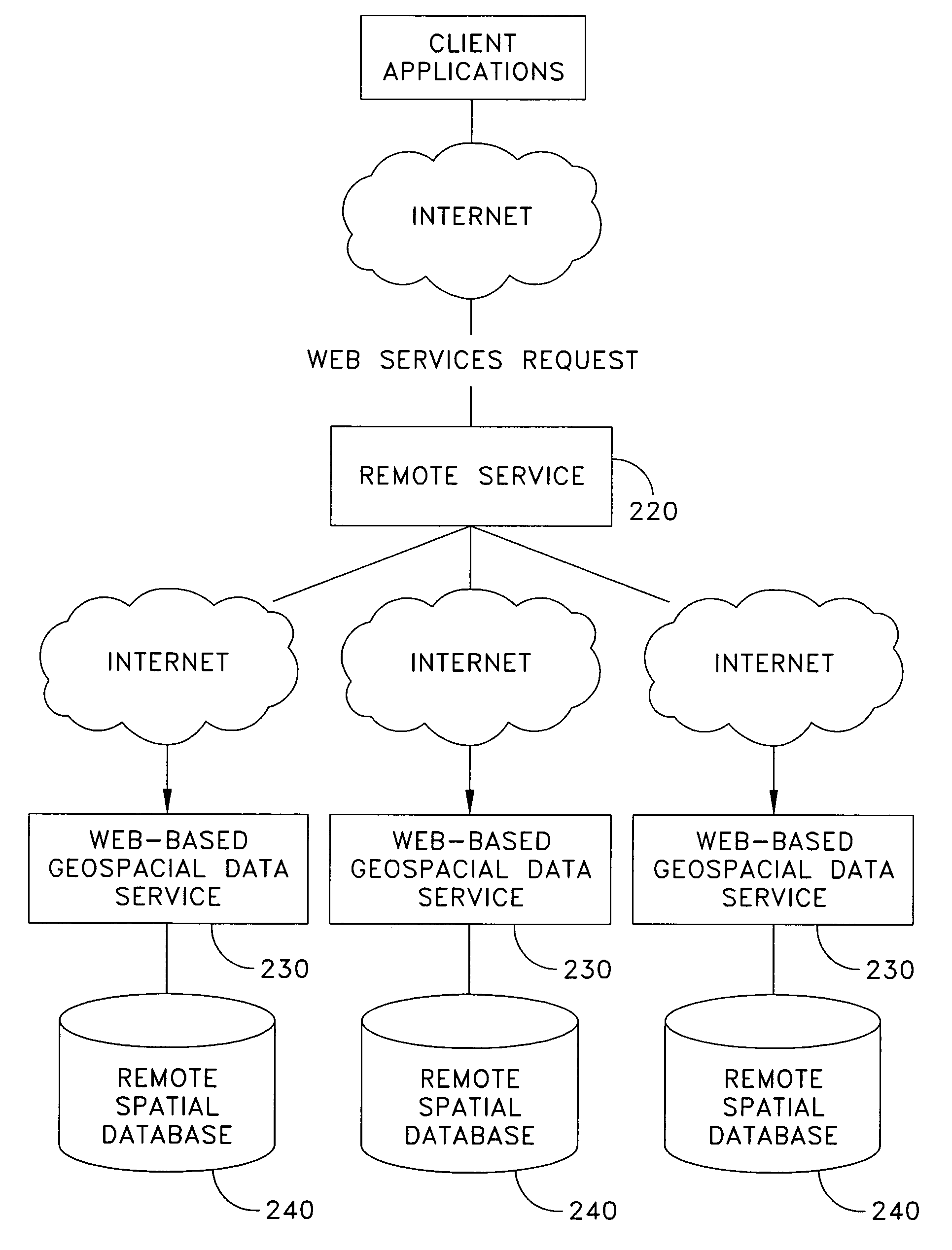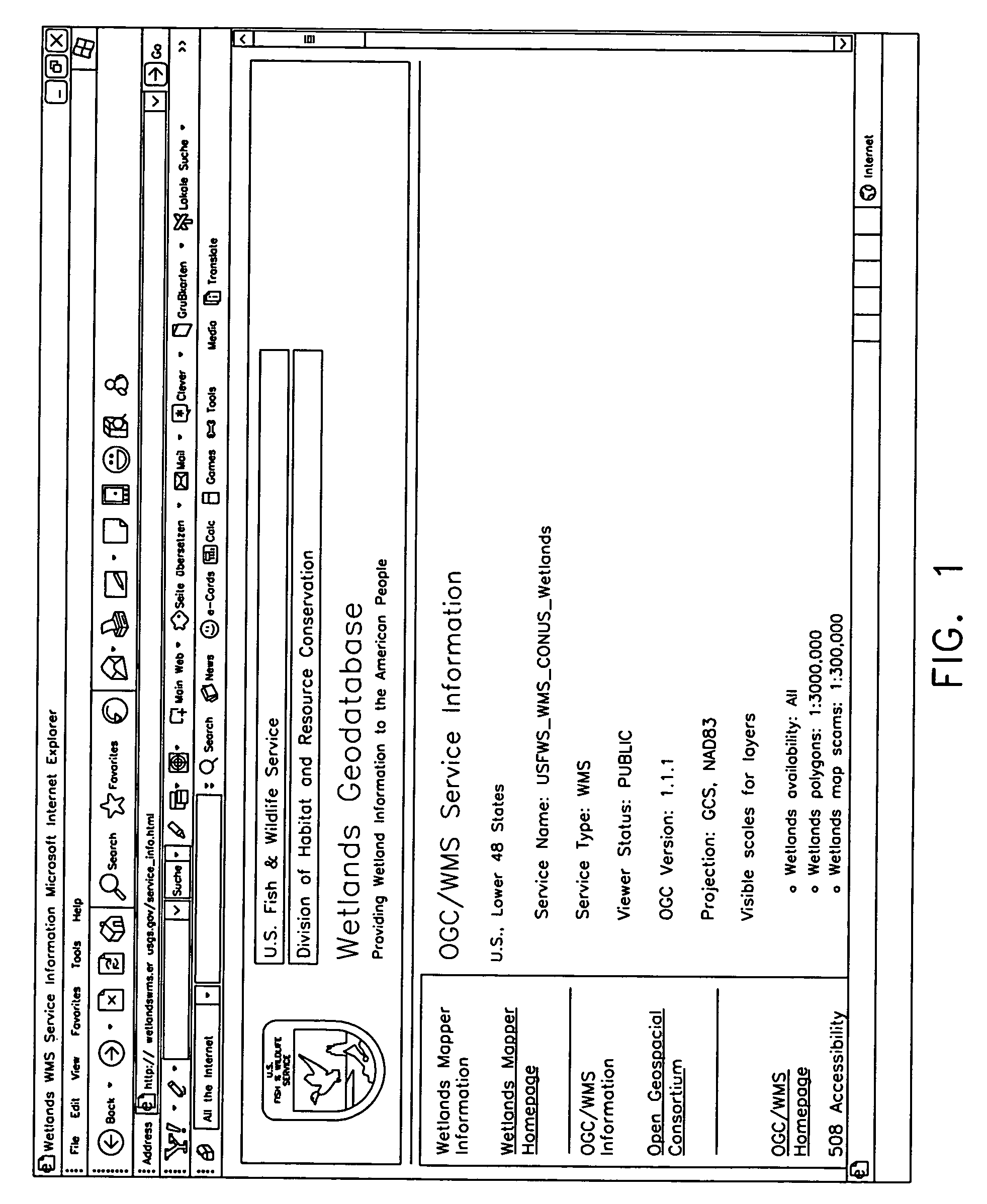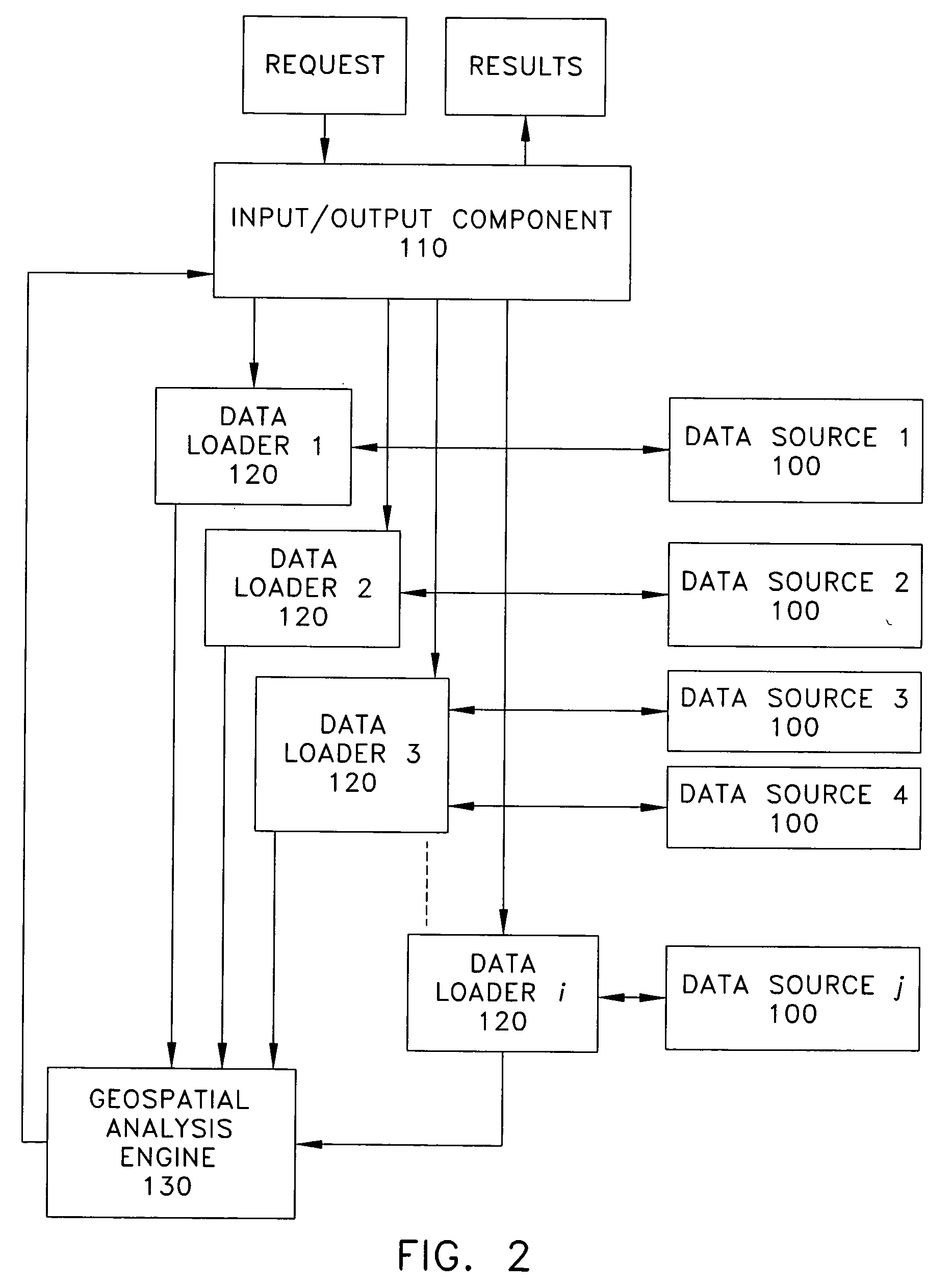System for remote data geocoding
a geocoding and remote data technology, applied in the field of geographic information analysis, can solve the problems of more difficult to determine the spatial relationship between the geographic locations specified in the two disparate data sets, the inability to integrate the geographic data from these web sites into a single, unified data set, and the “wholesale” downloading of their geographic data sets. the effect of complexity and knowledg
- Summary
- Abstract
- Description
- Claims
- Application Information
AI Technical Summary
Benefits of technology
Problems solved by technology
Method used
Image
Examples
Embodiment Construction
[0064]The present invention is directed to a system for (i) accessing geographical data residing in a plurality of disparate sets, (ii) establishing spatial registration between the geographic data residing in the disparate sets, and (iii) determining spatial relationships between geographic locations specified in the disparate data sets, where any or all of those datasets are remote from the user.
[0065]Referring now to FIG. 2, there is shown a novel system formed in accordance with the present invention. The access addresses for the data sources 100 specified by the user (e.g., URL addresses) are received by the input / output component 110. The access address for each user-specified data source 100 is passed to a data loader component 120. Each data loader component 120 determines what data formats can be provided by its associated data source 100 and then determines the format or formats which are best suited for performing the desired spatial analysis. The data loader component 12...
PUM
 Login to View More
Login to View More Abstract
Description
Claims
Application Information
 Login to View More
Login to View More - R&D
- Intellectual Property
- Life Sciences
- Materials
- Tech Scout
- Unparalleled Data Quality
- Higher Quality Content
- 60% Fewer Hallucinations
Browse by: Latest US Patents, China's latest patents, Technical Efficacy Thesaurus, Application Domain, Technology Topic, Popular Technical Reports.
© 2025 PatSnap. All rights reserved.Legal|Privacy policy|Modern Slavery Act Transparency Statement|Sitemap|About US| Contact US: help@patsnap.com



